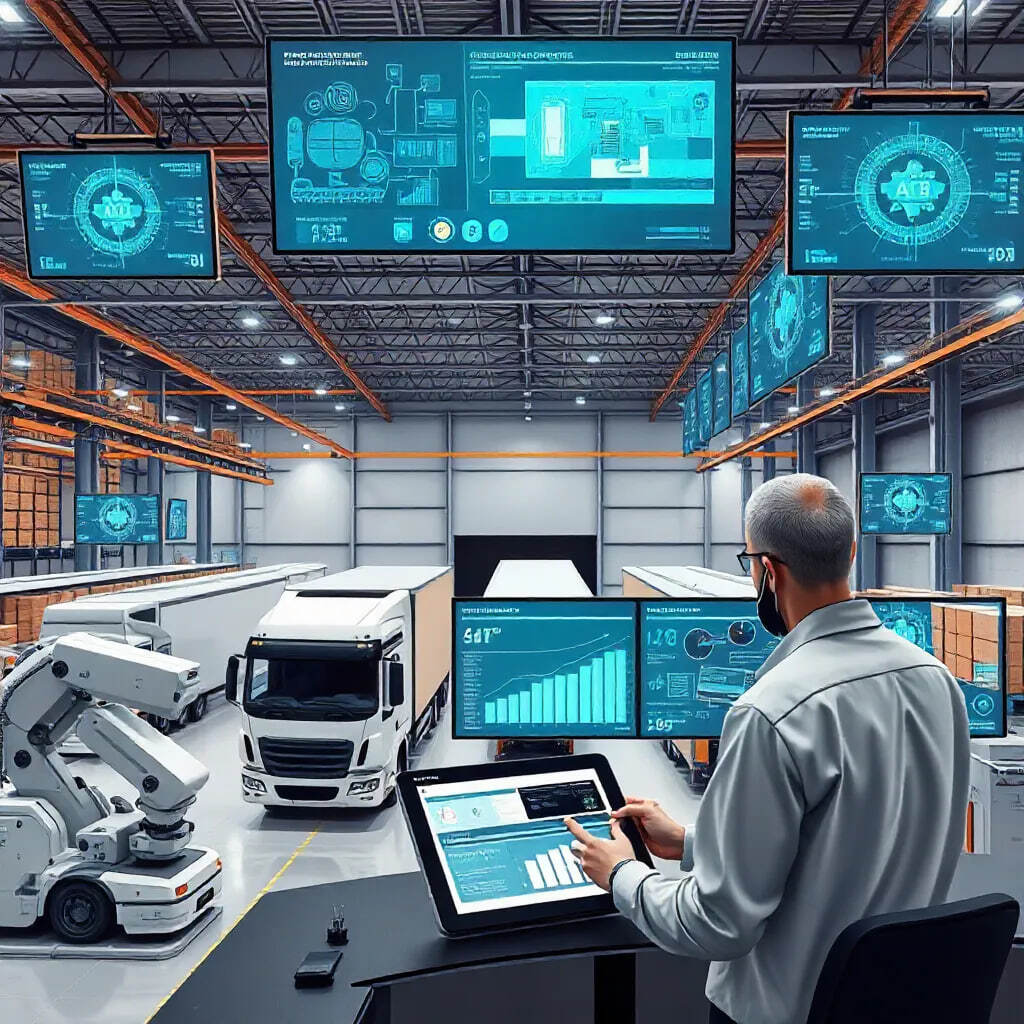The logistics industry is undergoing a digital transformation, with Internet of Things (IoT), Artificial Intelligence (AI), and blockchain playing pivotal roles. These technologies not only enhance operational efficiency but also address key challenges such as cost reduction, environmental impact, and supply chain transparency. This article explores how IoT, AI, and blockchain are reshaping freight transportation, optimizing smart routes, and reducing CO₂ emissions.
1. The Role of IoT in Freight Transportation
Real-time Tracking and Monitoring
IoT devices, such as GPS trackers, RFID tags, and smart sensors, provide real-time data on shipments, vehicle locations, and environmental conditions. Companies like DHL and Maersk use IoT solutions to monitor cargo and ensure compliance with safety regulations.
Key Data:
- The global IoT in logistics market is expected to reach $100 billion by 2030, growing at a CAGR of 13.2% from 2022.
- IoT-enabled tracking reduces cargo theft by 30% and improves delivery accuracy by 25%.
Predictive Maintenance for Vehicles and Equipment
IoT sensors collect data on vehicle performance, helping fleet managers predict and prevent breakdowns. This reduces maintenance costs and enhances operational efficiency.
Example:
- UPS’s ORION system uses IoT and AI to optimize routes, saving 10 million gallons of fuel annually and reducing 100,000 metric tons of CO₂ emissions.
Warehouse and Inventory Optimization
IoT-powered smart warehouses use automated systems to monitor stock levels and reduce human errors. Amazon’s fulfillment centers deploy IoT-connected robots, increasing efficiency by 40%.
2. AI-Driven Route Optimization: Cutting Costs and CO₂ Emissions
AI-Powered Route Planning
AI algorithms analyze historical and real-time traffic data, weather conditions, and fuel efficiency to optimize delivery routes. This reduces fuel consumption and enhances on-time delivery rates.
Key Data:
- AI-powered route optimization can cut fuel costs by 15-25% and improve delivery speed by 30%.
- The logistics AI market is projected to grow to $20 billion by 2028, with a CAGR of 23%.
Dynamic Rerouting and Traffic Predictions
AI continuously updates routes based on real-time conditions, avoiding traffic congestion and reducing delivery delays.
Example:
- FedEx and Amazon use AI-powered predictive analytics, reducing delivery times by 12-20%.
Fleet Efficiency and Autonomous Vehicles
AI-driven fleet management systems allocate resources efficiently, while self-driving trucks reduce human dependency. Tesla and Waymo are testing autonomous freight trucks to cut down labor costs and increase productivity.
Case Study:
- Waymo’s self-driving trucks are expected to lower operational costs by 30% and improve fuel efficiency by 10%.
3. Blockchain for Transparency and Security in Logistics
Eliminating Fraud and Enhancing Trust
Blockchain provides an immutable record of transactions, ensuring complete transparency in supply chains. This helps prevent fraud, counterfeiting, and document tampering.
Key Data:
- 53% of logistics companies are investing in blockchain to enhance security.
- IBM and Maersk’s TradeLens blockchain system has reduced customs processing times by 40%.
Smart Contracts and Automated Payments
Blockchain-based smart contracts automate payments once predefined conditions are met, reducing administrative costs and eliminating delays.
Example:
- Walmart uses blockchain to track food shipments, reducing contamination risks and improving recall efficiency by 30%.
Reducing Paperwork and Administrative Costs
Traditionally, shipping and customs paperwork slow down logistics operations. Blockchain reduces paperwork by digitizing processes, cutting costs by 30-50%.
Conclusion
The integration of IoT, AI, and blockchain in freight transportation is driving efficiency, reducing costs, and minimizing environmental impact. Companies leveraging these technologies benefit from real-time tracking, optimized routing, predictive analytics, and enhanced security. As the industry continues to innovate, smart logistics will become the new standard, shaping a more efficient and sustainable future.
The future of logistics is digital—embrace the change today!

